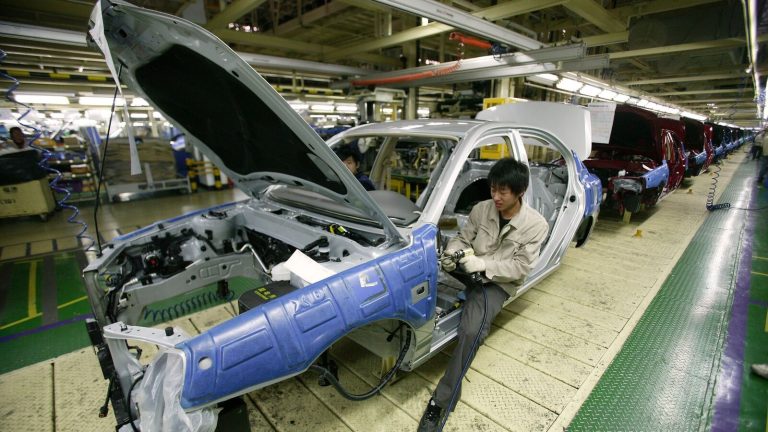The slowdown for L&T Technology Services Ltd (LTTS), KPIT Technologies Ltd, Cyient Ltd, and Tata Elxsi Ltd, as per a Mint analysis, is the latest setback for India’s $254 billion IT services sector.
The ER&D space, where companies design and build technologies and products for carmakers, grew 7.4% to end with $43 billion in revenue in the year ended March 2024, according to the National Association of Software and Service Companies. ER&D’s growth was almost double that of overall IT services, which expanded 3.8%, the slowest pace since the pandemic.
Revenue at LTTS increased 6.4% to $914 million in April-December, while KPIT grew 20.1% to $514 million. For both companies, the growth during this period was less than half than the increase in the April-December 2023 period.
Tata Elxsi’s business climbed 8.12% to about $351 million, which was a little more than half the growth in the preceding nine-month period. Cyient’s digital, engineering and tech business declined 3.16% to $517.8 million following revenue growth a year earlier. Newly listed Tata Technologies’ revenue grew 0.24% to $462.4 million.
Optimism around ER&D had led IT companies Cognizant Technology Solutions Corp and Infosys Ltd to buy ER&D firms. Nasdaq-listed Cognizant acquired Belcan, a healthcare software firm, for $1.3 billion in August. Bengaluru-based Infosys bought In-tech, a German automotive ER&D service provider, for about $450 million in April.
Global woes
At the heart of the weak showing by ER&D companies was a slowdown in business from global carmakers.
“The auto sector did well in the last four to five years, but now the OEMs in Europe are being challenged by their Chinese counterparts in terms of car sales, volumes, and even revenue,” a Mumbai-based analyst working at a domestic brokerage said on condition of anonymity.
OEMs refer to companies that make components that are used to build vehicles and include some carmakers that manufacture their own auto parts.
“On the other hand, US OEMs could be impacted due to tariffs in North America,” Kotak analysts Kawaljeet Saluja, Vamshi Krishna and Satishkumar S said in a note dated 3 February.
US president Donald Trump imposed 25% tariffs on imports of steel and aluminium, both used in cars, on 10 February. Jim Farley, chief executive of Ford Motor, the US’s second-largest carmaker, said on Tuesday that such measures were adding a “lot of cost and a lot of chaos” to the industry.
India’s largest ER&D companies ended the third quarter on a sombre note. LTTS, KPIT, Cyient, and Tata Technologies reported revenue of $312 million, $176 million, $175 million, and $156 million for the October-December period, respectively. This translated to growth of 1.7% each for LTTs and Cyient, 1.3% for KPIT, and 0.7% for Tata Technologies.
Tata Elxsi’s revenue fell 2.9% sequentially to $111 million in the quarter. This prompted a question mark on the allure of ER&D service companies, once Nasscom’s golden apple.
“We believe opportunities outside pure-play ER&D companies are more attractive in the near term,” the Kotak analysts said.
“Automotive will be something that will continue to be in a little bit of stress in my view for the next couple of quarters, not just one quarter,” Amit Chadha, chief executive of LTTS, said in a post-earnings interaction with analysts on 15 January.
A weak performance in the biggest markets of ER&D companies, including the US and Europe, dealt another blow to their growth. European and US businesses make up 18-52% of the revenue of the five companies.
Headcount drop
The lacklustre performance was reflected in the share prices of the five companies, which fell between 1 April and 31 December. Vadodara-based LTTS’ share price fell the most – by 14.65% to ₹4,734.95 on 31 December.
The pressure was felt even on the headcount of these companies.
“Indian pure-play ER&D services companies’ employee headcount has declined for the third consecutive quarter, reflecting demand challenges in key verticals,” the Kotak analysts said.
Cyient, KPIT, LTTS, Tata Elxsi, and Tata Technologies ended December 2024 with 14,378 employees, 12,795 employees, 23,465 employees, 12,878 employees, and 12,659 employees, respectively. The overall headcount of all the companies declined by 882 on a net basis in the October-December quarter.
Still, there were mixed signals about their profitability.
Cyient, Tata Elxsi, and Tata Technologies reported a sequential narrowing of their operating margins to 13.5%, 23.5%, and 15.5%, respectively. KPIT and LTTS increased their margins to 15.9% and 17.2% respectively.


